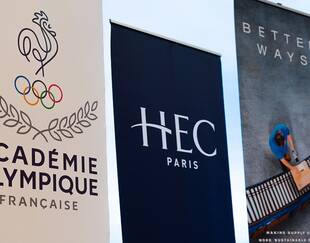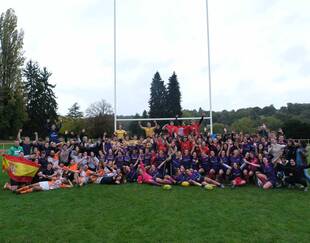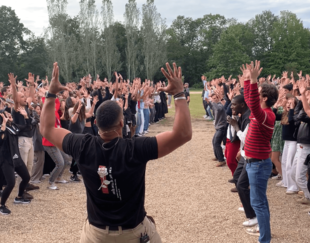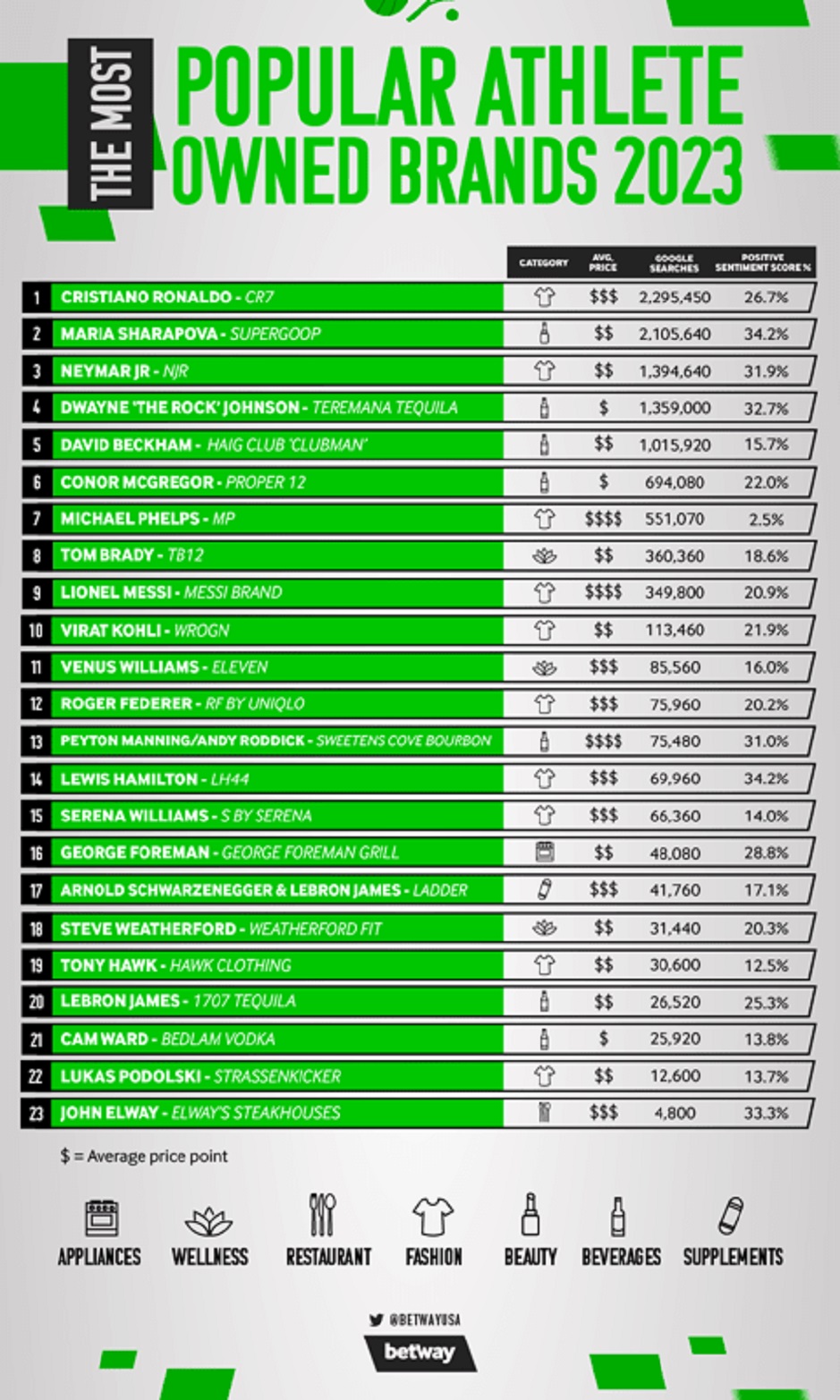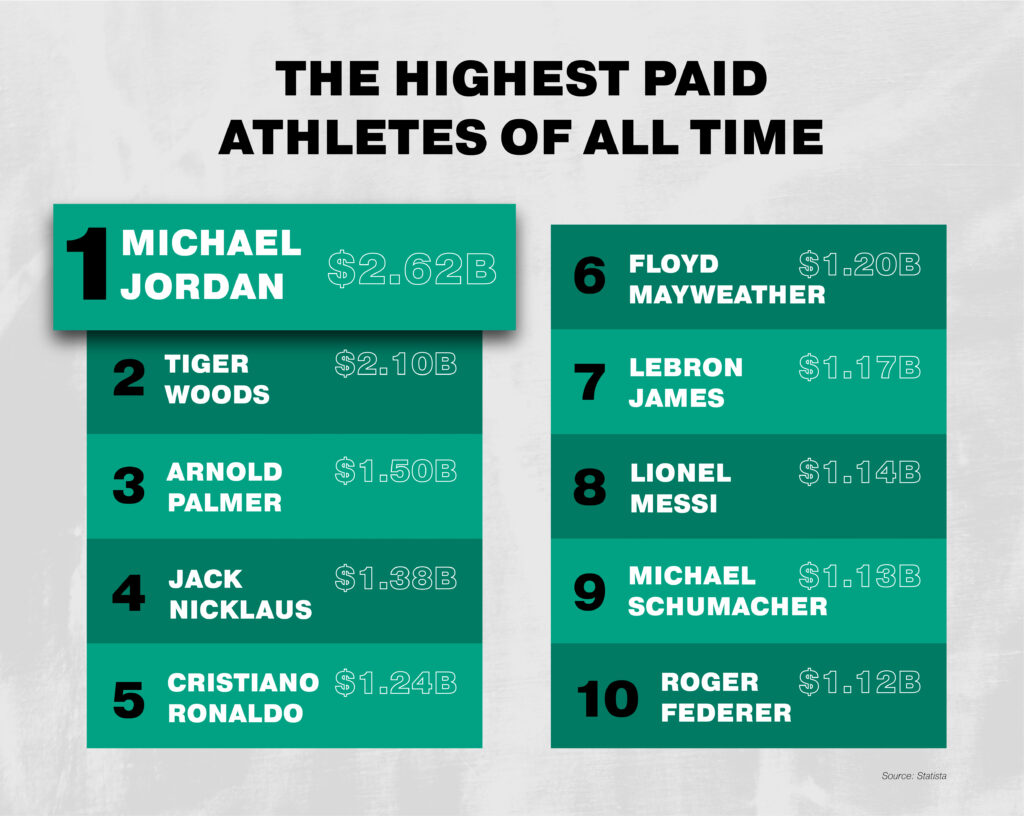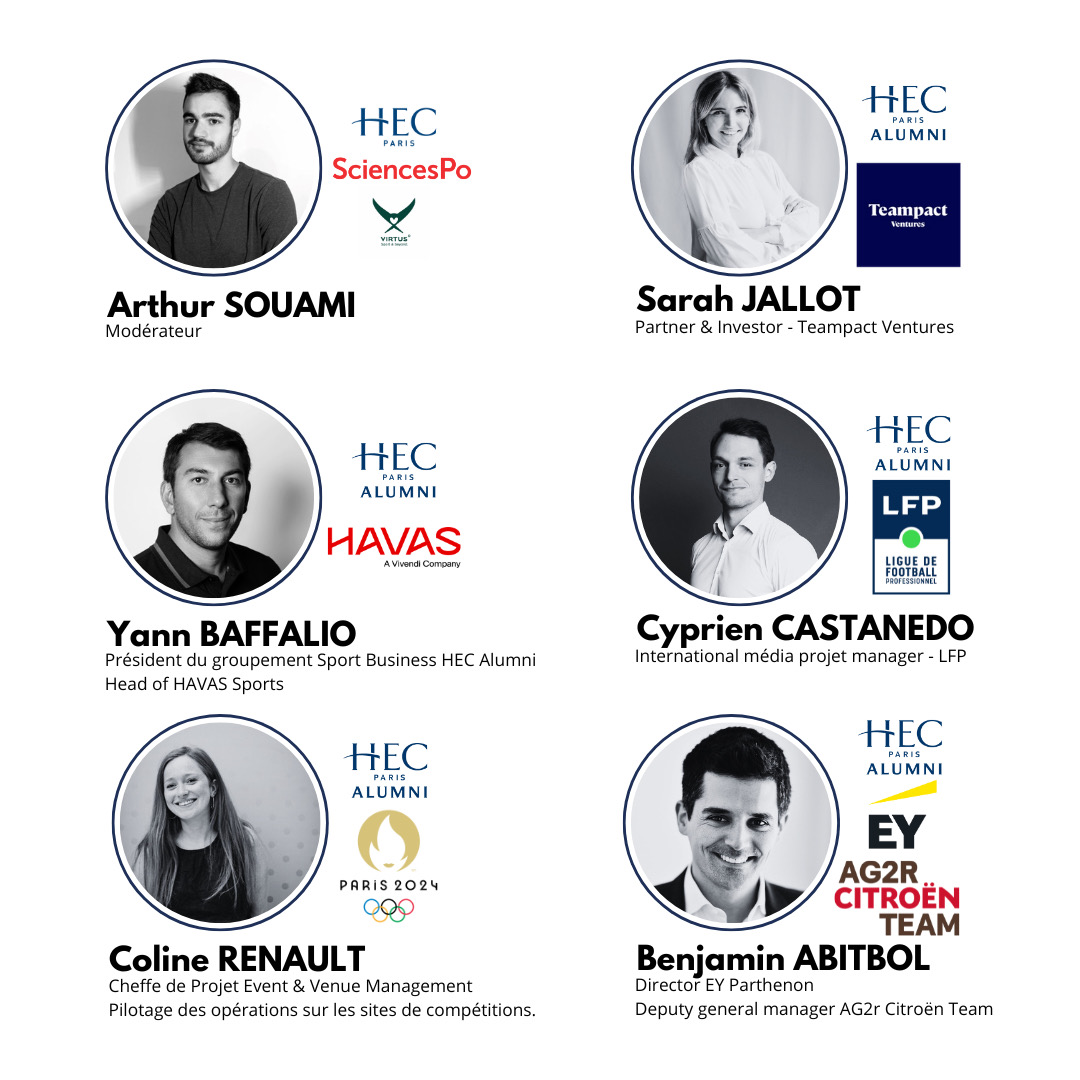Get into sports...business!
On the eve of an Olympic year, on Wednesday November 15, 2023, HEC Paris hosted a round-table discussion on careers in sport, organized by the Grande école and Masters programs academic department, with members of the HEC Alumni "Sport Business" Club. The expertises and testimonies of the heads of federations, clubs, members of Paris 2024 and executives in communications, investment fund and consulting companies shed light on the economic stakes of this booming sector. These discussions also enabled students and online viewers to explore the career opportunities offered in the sports industry.
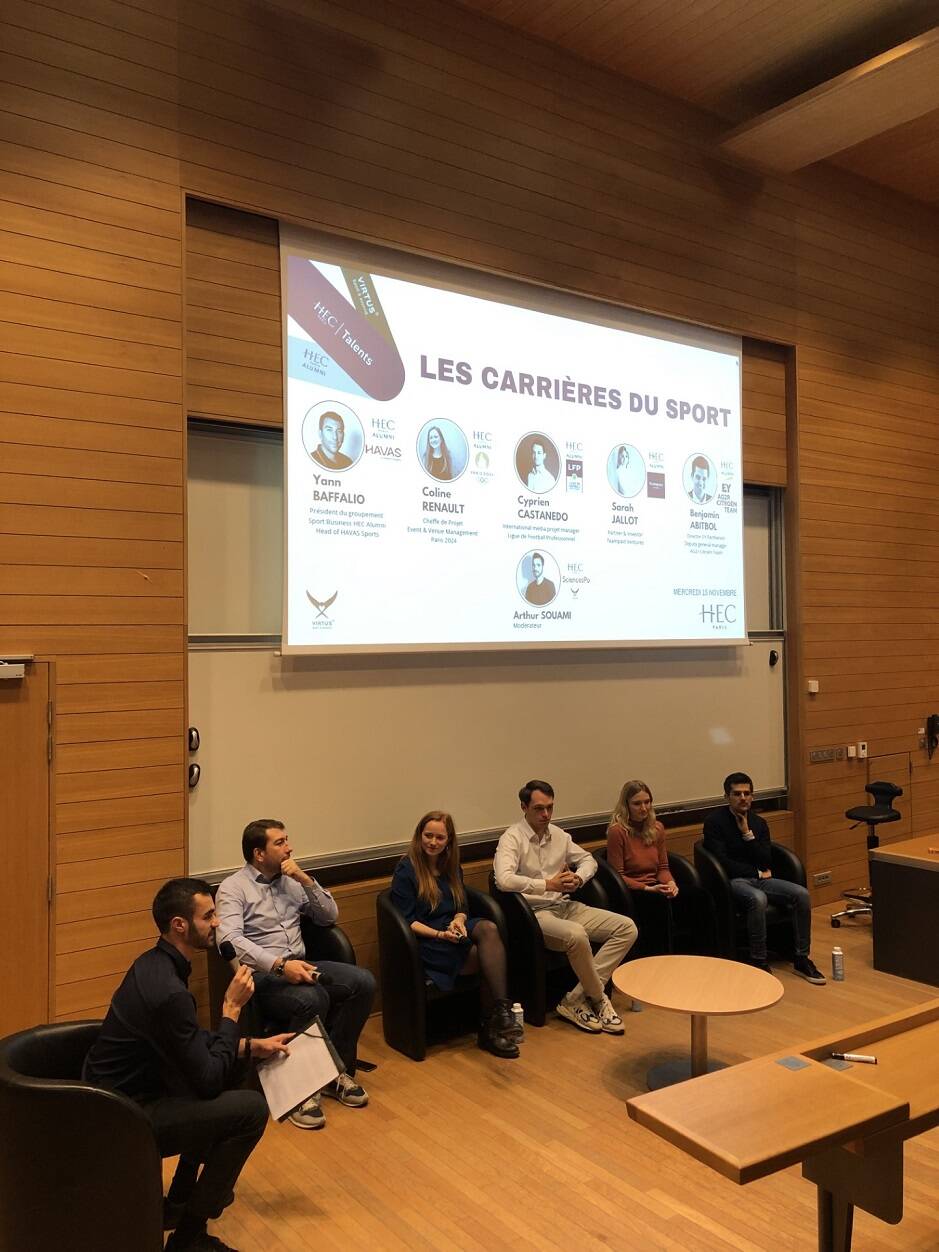
Des experts et managers du sport-business à HEC Paris © Frédéric Voirin
Auteur/Author of this article: Frédéric Voirin
2024 will undoubtedly be a sporting year in France, with the 33rd Olympiad being held throughout the country. In addition to the "biggest event ever organized in France", according to the Paris2024 Games organization, the world of sport needs leaders who are better trained in management to responsibly develop all the economic activities of a rapidly expanding sector.
This was the topic of discussion in amphitheater T205 at HEC Paris, with former top-level athletes and managers graduating from the Grande Ecole's Master in Management.
Watch the replay of this sport-business conference here :
A professionalizing sector that needs well-educated managers
Jérôme Flammier, head of sports programs at HEC Paris' Grande Ecole academic department and co-organizer of this round table, points out that "in a historic and unprecedented momentum such as the hosting of the Olympic Games in France, HEC Paris is an ideal interface between a dynamic economic sector, growing student interest in sport-business and a need for sustainable training."
Sport is no longer reserved for the social elites of 1900, and have become highly professionalized.
According to a French Senate report on the sports sector, as far back as 2014, French professional sport constituted an economic sector in its own right, of the same order of magnitude as film production! Indeed, the resources of the sports sector excluding the knock-on effect exerted on the rest of the economy (service providers, media, equipment, catering, transport) represented two billion euros in 2014 in France, nearly 70% of which by soccer. Ten years later, in 2023 the overall sports sector in France comprises 128,000 companies, generates 71 billion euros in sales and represents 2.6% of GDP, according to a study by the BPCE observatory on the sports economy.
Revenue generated in 2023 by sport in France totals 71 billion euros, representing 2,6% of the GDP
Professional sports clubs, originally organized as associations, are now commercial companies, issuing 13.1 million sports licenses in France. This is even an obligation imposed by Article L. 122-1 of the French Sports Code. Since Law no. 2012-158 of February 1, 2012, aimed at reinforcing sports ethics and athletes' rights, clubs have been able to adopt the statutes of ordinary law and, in particular, to incorporate in the form of sociétés anonymes.
These changes in the law are tending to professionalize the world of sport and accelerate the development of sport-business, in the image of clubs that have become brands, such as PSG, or the power of American leagues like the NBA and NFL. Faced with ever-increasing economic and geopolitical stakes, the growing presence of sporting practices in our daily lives and the constant quest for hyper-performance in our contemporary societies, the sports sector needs leaders from the best management backgrounds to ensure the economic development of professional and spectator sport, with its now global events.
This development raises a number of ethical concerns, including the privatization of major sporting competitions by private interests, who are accused of capturing the common good (see the statement released by Régis Juanico, Member of Parliament for the Loire region).
As Europe's leading business and management school, HEC Paris has a legitimate position in this market to train students for careers in the sports business.
Sports jobs consists of a “constellation” of opportunités
"There are jobs in finance, strategy, marketing, tech, there's everything in sport!". Cyprien Castanédo (H.23), International Media Project Manager at the Ligue de Football Professionnel and recent graduate of the master's program Project, Innovation, Conception, sums up the situation in today's sports sector very well. Sports management teaches us to manage commercial organizations such as sports halls and stores, sports clubs, equipment brands, specialized media and sports events, as well as noncommercial activities such as managing federations, associations and municipal sports departments. The world of sport therefore encompasses a wide variety of professions requiring management and project management skills that are not so unusual for business school graduates.
Next to Cyprien, Benjamin Abitbol (H.12) agrees. A graduate of the Master of Science in Management and employed in strategy consulting, where he specialized in sport-business, seconded from EY-Parthenon and deputy director of the AG2R Citroën Team cycling team for 18 months until the end of 2023, explains that "the sport ecosystem is in fact a constellation: venues, media, financiers, sales, communication, distributors... It's a real industry!
"The sports ecosystem is a constellation: venues, media, suppliers, sales and financial representatives, communicators, distributors...It's a real industry!"
Yann Baffalio (H.03), director of the Swiss branch of Havas Sports and president of the HEC Alumni "sport-business" club, also points to the trend in this professional sector towards opening up to untrained profiles: "Many career paths can lead to sport-business. My old roommate Martin, for example, took the same marketing major program as me, then went into communications, then advertising, before becoming the head of a cycling team. And 20 years after graduating, we find ourselves at the same professional events."
Career opportunities undeniably exist in sport for HEC profiles. Whether or not they have been specifically prepared for this environment. This can even involve activities less directly linked to sport, such as sustainable development, eco-responsibility or how to meet the challenge of waste reuse. In fact, current students from HEC's Sustainability and Social Innovation Master's program will be taking part in a Hackathon on the potential waste management of Paris 2024 Olympic Games, on January 19, 2024 at the French National Olympic and Sports Committee.
« The daily life of an entrepreneur and one of an athlete are very similar »
Sarah Jallot (H.21), a former top-10 junior swordwoman, is co-founder of the TeamPact Venture investment fund, which guides top-level athletes to become investors - a company which won the Prix Trajectoires HEC in 2022. Thanks to her dual professional experience, the multi-medalist swordswoman turned Tech entrepreneur confirms that "the daily lives of an entrepreneur and an athlete are very similar: very highs and very lows, managing to last over time, maintaining your efforts, not giving up". Thanks to her apprenticeship in the HEC Paris-Institut Polytechnique double degree program and her student involvement in the HEC Positive Restructuring association, which specializes in strategy consulting for SMEs in difficulty, Sarah forged her perseverance and learned to master these kinds of professional challenges right from her time at HEC.
Just as entrepreneurs are integrating the latest innovations into their business development, Sarah adds: "We're seeing investment funds like Blaise Matuidi's being set up, others applying data to cycling, or artificial intelligence with financial algorithms, for example. It's very dynamic in terms of innovation." Yann Baffalio picks up on Sarah's comments, pointing out: "The Minister of Sport has launched an action plan to develop sport-tech in France. There are plenty of HECs in tech, which is a real asset for our community."
“The sports sector is very dynamic in terms of innovation”
The same phenomenon happens in entrepreneurship: you don't have to be highly experienced to succeed. Coline Renault (H.21), a graduate of the Grande Ecole Master in Management program and project manager in charge of strategic planning for Paris2024, confides that she "stepped into a world I knew nothing about, without being overly prepared, but everyone is smiling and happy to work". Yann Baffalio confirms this trend towards openness to broad profiles: "Many career paths can lead to sport-business. My former roommate Martin, for example, took the same marketing major as me at HEC, then went into communications, then advertising, before becoming dircom for a cycling team, and 20 years after graduating, we find ourselves at the same professional events."
“Many different paths can lead to sport business"
Another opportunity identical to entrepreneurship in the sports business: creating your own job. Yann Baffalio, all smiles, proudly continues: "I've created my job twice". At the communications consultancy Havas, he moved from general CRM (consumer relationship management) to "fans relationship management", as he calls it. This involves managing customer relations with fans of various sports clubs. An activity that didn't necessarily exist just a few years ago.
Careers in sports business can also come late in life. Antoine Duval (H.22), a graduate of the Grande Ecole Master in Management program, founder of the consulting firm Six Sports Management and former president of the student association that organizes the Virtus Sport & Beyond Tournament with his peer Lou AdlerVirtus Sport & Beyond tournament alongside Lou Adler, testifies to a fundamental piece of advice given to him by his mentor and former internship supervisor: "Yann Baffalio once told me when choosing a career that 'if you want to work in sport in the long term, start your career in sport. If you don't have the opportunity to do so, you can come to it later too'.
A lower-paying sector ?
Although the earliest known pay of athletes dates back to 580 BC. when Solon promulgated a law stipulating that each Athenian winner of the Olympic Games would receive 500 drachmas1 and the first professionalization in France dates back to November 9, 1537, when François I knighted the players of the Jeu de Paume2 , it wasn't until 1846 that the first real collective professional sports clubs were set up in Europe (cricket and then soccer, respectively, in England in 1876), and the first executives appeared to manage these first federations abroad.
France's first omnisport federation - the Union des Sociétés Françaises de Sports Athlétiques - didn't appear until 1887, and the rugby was not professionalized in France until 1995.
Back in 2023 and on the subject of executive and managerial remuneration, Benoit Abitbol is categorical about remuneration in sport-business: "It's often said that the sports sector pays less than a 'traditional' job, but that's not true. It really depends on the job and the industry concerned, and you can get good or even very good pay. The heart of the value in sport-business is redistributed to the athletes and that's normal, because it's these people who have the real merit."
“It's often said that the sports sector pays less than a 'traditional' job, but this is not true”
Yann Baffalio, backed by 20 years' professional experience, has a very clear opinion on the question of salary: "There are as many differences in sport as in other more traditional sectors, and it's mainly the job that determines the salary. Salaries are lower in the media than in banking. But when you graduate from a marketing major, for example, working at Décathlon pays the same as working in a more traditional company."
Finally, to give you an idea of what's going on in the sports world, the same kind of disparity can be found in athletes' salaries. Their sporting results can even be totally uncorrelated with their finances. A striking example: the world's most decorated athlete is not the best paid, nor the best known. Indeed, French windsurfer Antoine Albeau, virtually unknown to the general public, with 25 world championship titles and an unbeaten world speed record of 98.66 km/h on the clock, dethroned American swimmer Michael Phelps before retiring in 2022. And yet, in 2017, the windsurfer already admitted having difficulties in financing his activity and international travel.
Very often, in the age of screens - whether televised or online - the reason for a notorious financial boom is linked to the media coverage of a sport and the investment power of sponsors related to its champions.
Sport-business, boosted by the globalization, will keep expanding
Despite these disparities in salaries experienced by sports managers and champions, with the globalization of sport, new opportunities are opening up not only for major Western institutions, but also for brands and sports clubs.
Some organizations are more aggressive than others in conquering foreign markets. The National Basketball Association (NBA) and English, French and Spanish soccer clubs are just a few examples of how star players have been transformed into brands with unrivalled commercial success: Cristiano Ronaldo, Maria Sharapova, Michael Jordan, Venus Williams, Tiger Woods, David Beckham and Roger Federer to name but a few.
From a macroscopic point of view, according to the Canadian business magazine Gestion, the globalization of sport "has opened doors to so-called emerging countries for the organization of high-profile international sporting events, such as the soccer World Cup (in South Africa in 2010, in Qatar in 2022), the Olympic Games (in Russia in 2014, in Brazil in 2016), Formula 1 races (in China, the United Arab Emirates, Malaysia), and also for the financing of sports clubs". In Europe, several clubs are already owned (such as Paris Saint Germain soccer club), in whole or in part, by financiers from the United Arab Emirates, Hong Kong, Qatar and Russia.
The globalization of sport has opened doors for so-called emerging countries to host high-profile international sporting events.
Within the next few years, North American professional teams are also likely to open up to the capital of businessmen from emerging countries. All the more so as North America is fertile ground for these new money-makers, partly because of the continuing economic crisis in the United States, and partly because of the fragility of a few franchises in the continent's main leagues (NHL, NBA, NFL). These new "players" or stakeholders in sports entertainment are redefining the contours of the sports business ecosystem.
Aware of the opportunities offered by the world of sport, Yann Baffalio is optimistic about the European sports market: "In 2024, we'll be lucky enough to have the Paris 2024 Olympics, of course, but before that there's the Euro in Germany, and every summer we have the world's 2nd biggest sporting event: the Tour de France".
CSR and ethics in sport-business
The challenges of globalization and the opening up of new sports and events markets also raise the question of ethics and social and environmental responsibility in sports businesses. First and foremost for the economic players in these sports, but also for their spectators. Responsibility seems to be a shared responsibility.
For Jérôme Flammier, in charge of sports programs at the Grande Ecole's academic department, "the phenomenon of ultra-globalization also raises the question of how to rethink the model to make it sustainable."
For this former physical education and sports teacher in priority districts of the Créteil Academy, now on secondment to HEC Paris, "the world of sport must be able to respond to the challenge of taking into account the physical repercussions of its organization in the face of planetary limits. Maël Besson, an expert in the ecological transition of sport, alerts us to the stakes involved in the model's acceptability, saying that "there is a strong risk that certain sport disciplines will become the symbol of social injustice in the face of climate change: if certain practices no longer become acceptable in their entertainment dimension, sport would risk being deprioritized or even sidelined, even though in times of crisis we need communion, which sport offers better than any other cultural event."
Initiatives that mobilize sports players are emerging, as in May 2023, when a letter of commitment called Sport Sponsors Climate Pledge was published by 17 Sport, aiming to establish a link "between the financial support of committed sponsors and the sponsored sports organization's performance in reducing carbon emissions." Fabien Paget, co-founder of 17 Sport, explained that "being committed means more than simply acting responsibly. It's about finding ways to mobilize your resources, influence and ecosystem to help solve important social and/or environmental challenges, while generating positive business results. Sponsors are beginning to use their influence with sporting entities to encourage them to contribute more meaningfully to building a sustainable future for the world."
HEC Paris students are already aware of these issues, and "academic initiatives linked to sport business are being developed to help them build viable, sustainable models", Flammier adds.
A small but sturdy HEC Alumni network in sport-business
In this context of globalization and the expansion of sport-business to so-called emerging countries, HEC is seen as the institution of choice for training, as it is positioned at the crossroads of education and the business world, thanks to its network of alumni all over the world. Although smaller than those in finance, consulting or marketing, the professional network of HEC alumni in sport is very close-knit and supportive, according to the panellists present. Yann Baffalio takes up his hat as president of the sports alumni club to "salute the rapprochement between HEC Alumni and students: the HEC network works well, it works between generations". He also makes a wish to the community of alumni working in sport-business: "Don't hesitate to share advice, give a reco or mentor."
What's more, as Benjamin Abitbol points out, "the sports ecosystem is quite small from the outset, so the people you'll be working with will be there for you later on in other positions, and you'll benefit from them throughout your career".
“The sports ecosystem is small, so you'll quickly find your old colleagues along the way."
Coline Renault adds to the competitive advantage of studying at HEC for a career in sport: "The enormous strength we have is that there are very few HECs in sport-business. At Paris2024, for example, there are only five HECs out of thousands of jobs. As a result, we are given a lot of responsibility, and every 6 months we are given a chance to evolve". Indeed, the young project manager in charge of site planning for the Paris Olympics has already moved through 3 different departments and 5 positions in 3 years. Enthusiastic, she confirms that "it's very fast and it's a great opportunity to come out of HEC", before concluding "for the future, you have to be ready to be a bit nomadic and move around, for example to Milan in 2026 for the next Winter Olympics or to Los Angeles for the 2028 Olympics". He is certain that the network of HEC graduates will help him pursue his career internationally.
Cyprien Castanédo confirms that "sport business is a small environment, but you can thrive in it. "He says that at the start of his career, he did "the machine gun on Linkedin": he contacted 300 profiles, including one from Jacques-Henri Eyraud, then President of Olympique de Marseille. Thanks to him, he joined the Marseille soccer club's teams. Cyprien then joined Canal+ to manage sports rights, and is now preparing a streaming platform dedicated to football.
"Sport business is a small world, but you can thrive in it".
Beyond the passion that can motivate a professional career in sport, Benjamin Abitbol points out that "the good arguments are your real professional skills, your real added value". Cyprien Castanédo concludes by pointing out that "as the business is small, if you're good, the pros will know it."
So, after celebrating the start of the 2023 academic year with a haka never seen before in Europe, launching the first mixed student rugby tournament to enrich student life and organizing the MBAT, Europe's biggest student sports event, HEC Paris is continuing its sporting quest with a career-focused round-table discussion to ensure that sport and business are not left on the sidelines.
Now all you have to do is get down to sport...business!
Related articles
